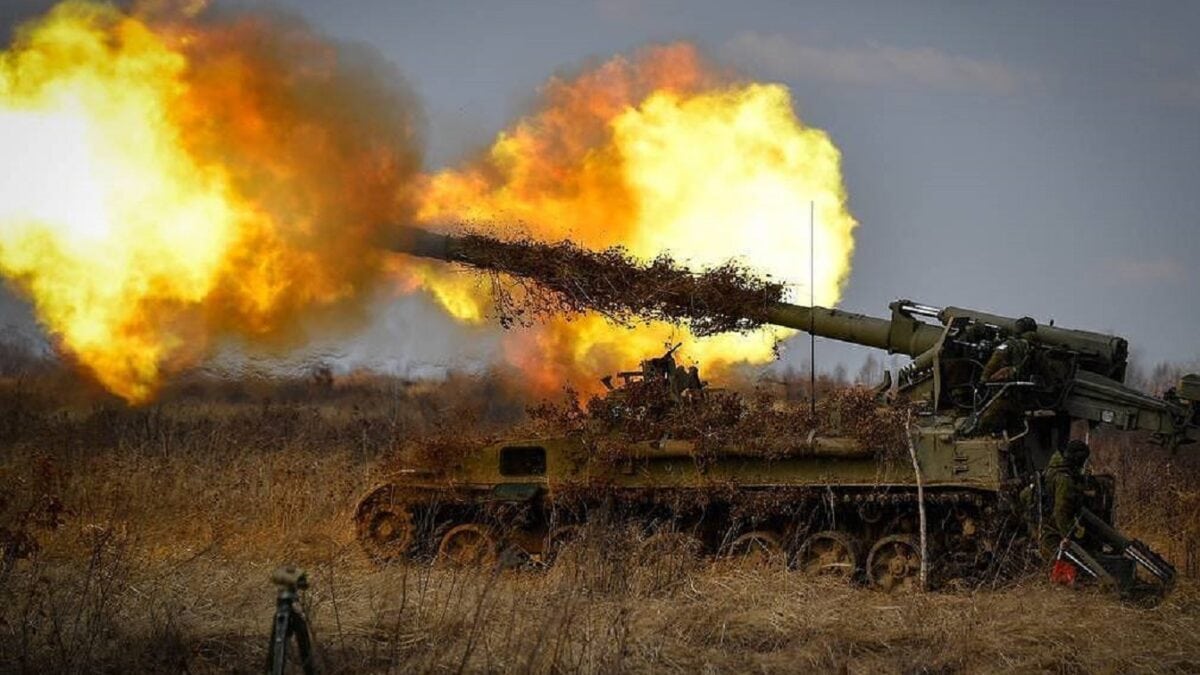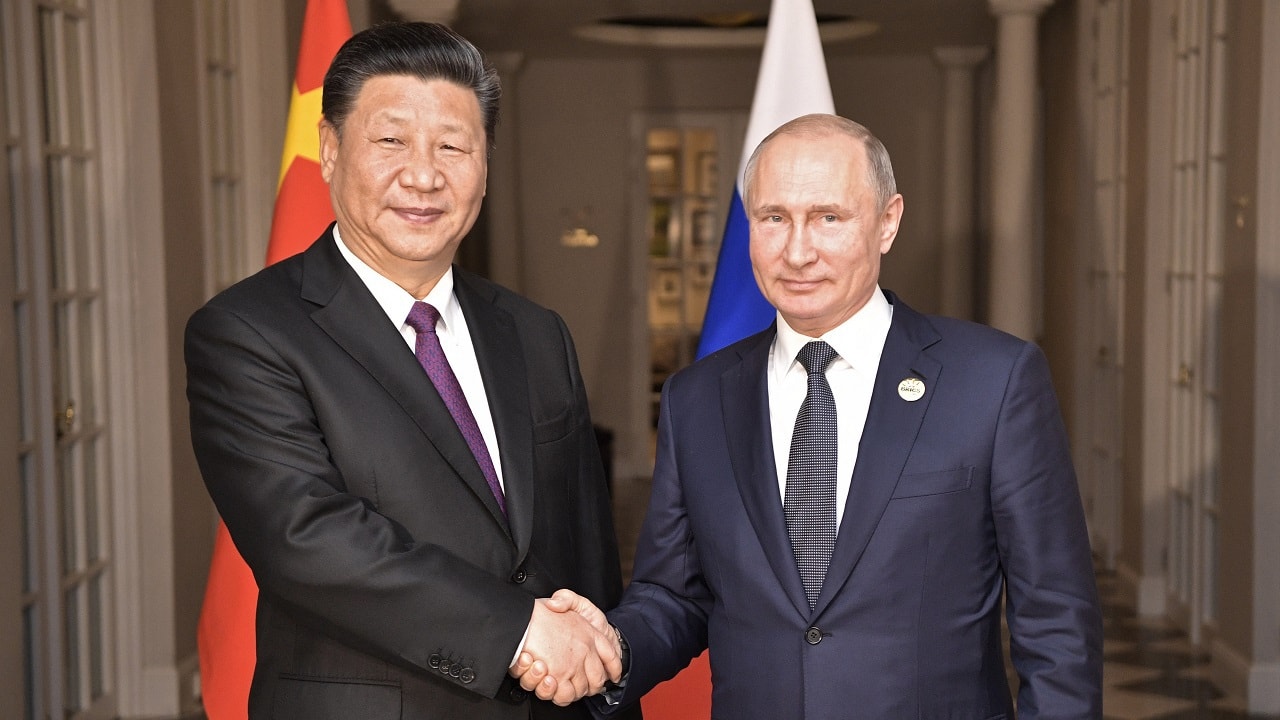As the U.S. and Western leaders continue with Russia to accuse each other of trying to start a war over Ukraine, the Russians have gotten support from an unlikely place, China. Both are driven by their desire to weaken American influence around the world.
The two sides have closer ties now than at any time since the 1950s.
The two countries have both accused the US and the Biden administration of having a “Cold War mentality” with the State Department’s virtual summit of 110 countries being invited to a “Summit for Democracy” and excluding both Russia and China, who despite being autocratic societies insist on describing themselves as democratic.
Russian President Vladimir Putin will travel to Beijing and meet with Chinese President Xi Jinping in the first meeting Xi has had with other world leaders since the COVID-19 pandemic emerged more than a year ago.
The backdrop of Putin and Xi meeting at the start of the Olympic Games will be a pivotal moment as many US analysts believe that the Chinese would not look favorably on the start of the games in Beijing with an invasion of Ukraine by Russia. And there is a precedent there.
In 2014, just as the Winter Olympics were finishing in Sochi, Russia, Russian troops invaded and annexed Crimea in Ukraine. And in 2008, at the start of the Summer Games in Beijing, Russia used that moment with the world’s attention riveted on China’s Olympics to invade Georgia.
US Deputy Secretary of State Wendy Sherman stated that Xi Jinping “would not be ecstatic if Putin chose that moment to invade Ukraine.”
The Chinese Foreign Ministry denied a report from the Bloomberg news outlet that the PRC asked Russia not to invade Ukraine again during the games. Russian state news agency TASS denied the report calling it “fake news and a way to inflame tensions.” Chinese foreign ministry spokesperson Zhao Lijian, likewise criticized the report, stating that, “the report is purely made up out of thin air. It seeks not only to smear and drive a wedge in China-Russia relations but also to deliberately disrupt and undermine the Beijing Winter Olympics,”
Checkered Past, Undeclared Border War, Now Allies:
The Chinese and Russians have strengthened their political, economic, and military relations this year, despite their uneasy history in the past, as both countries say they resent what they call growing pressure from the West.
The two countries both adopted Marxism-Leninism and after World War II, initially were close, signing the Treaty of Friendship, Alliance, and Mutual Assistance in 1950.
However, the Soviets feared a massive invasion by millions of Chinese troops despite having a huge advantage in modern weapons and equipment. According to Arkady Shevchenko, the highest-ranking Soviet defector to the US during the Cold War, “The Politburo was terrified that the Chinese might make a mass intrusion into Soviet territory”. The thought of an invasion of this magnitude was a real concern for the Soviets.
They began to diverge when after Stalin’s death, Nikita Khrushchev, began a de-Stalinzation program and promoted “peaceful co-existence” with the West. The Chinese under Mao Zedong was appalled at the “revisionism” of the Soviets. Relations were broken off in 1962 when Mao was angered that the Soviets did not go to nuclear war with the United States over the Cuban Missile Crisis.
With the rhetoric ramping up on both sides, the Chinese moved nearly 1.5 million troops to the border with the Soviets by 1968. The Red Army had 375,000 troops, 1,200 aircraft, and 120 medium-range (nuclear-capable) missiles. After the Soviets invaded Czechoslovakia, they announced that they retained the right to overthrow any communist regime’s government that was branching off from what was defined by the Kremlin.
On March 2, 1969, the Chinese initiated the conflict by ambushing Soviet troops on Zhenbao Island. Both sides suffered heavy casualties. Later in the year, as the prospect for an expanded war grew, the Soviets probed the US and asked what the American reaction would be if they attacked Chinese nuclear sites.
After decades of little movement in diplomatic circles concerning the border region, the two sides entered into an agreement in 2003, that was strengthened in 2008. The Chinese Communist Party’s (CCP) version of the conflict, is that it was Soviet aggression.
An Alliance of Convenience?
Since both countries were seeking to usurp US hegemony in influence around the world, an alliance between the two makes sense in some factors of their relationship. Following Russia’s annexation of Crimea in 2014, Moscow was on the outs with many nations in the West, and sanctions were hurting their already fragile economy. That’s when everything changed.
Putin needed China now as both a military and economically, but the trust factor was still lacking. Russia’s security services incorporated very little Chinese technology, wary of the issues that could crop up there. Russian industrialists wanted and needed the Chinese marketplace.
In 2015, the two sides put aside their differences, at least for the short term, and signed an agreement that put China’s Belt and Road Initiative and the Russian-led Eurasian Economic Union on the same path.
But there are already cracks appearing in this alliance, while small, will eventually rear their heads and affect both sides. Russian security services are already complaining about the espionage being conducted by the Chinese. As the Chinese grow stronger, both politically and militarily, they are being more assertive and it is beginning to chafe at those in Moscow.
With Ukraine once again dominating Western thoughts, it has made this alliance of convenience closer once more. Governments around the world are leery of what they see as aggression by Russia against Ukraine and China’s increasing aggressiveness against Taiwan.
While the two sides have held military drills together on both land and at sea, those are mainly superficial and don’t appear to be serious, long-term pacts as the Cold War memories still linger in the background.
This Ukrainian situation has driven Russia ever closer to China on “Chinese terms”. Should the US and the West hit Russia with crippling economic sanctions, Moscow will look to China for an economic lifeline. And that will come with strings attached.

Russian Artillery Firing. Image Credit: Creative Commons.
Despite the differences in each situation, the Chinese see Russia’s insistence that Ukraine reverts to be under their control as very similar to their view that Taiwan is part of China. And yet they’ve never recognized the Russian annexation of Crimea.
It is…an alliance of convenience
Steve Balestrieri is a 1945 National Security Columnist. He has served as a US Special Forces NCO and Warrant Officer before injuries forced his early separation. In addition to writing for 1945, he covers the NFL for PatsFans.com and his work was regularly featured in the Millbury-Sutton Chronicle and Grafton News newspapers in Massachusetts.

